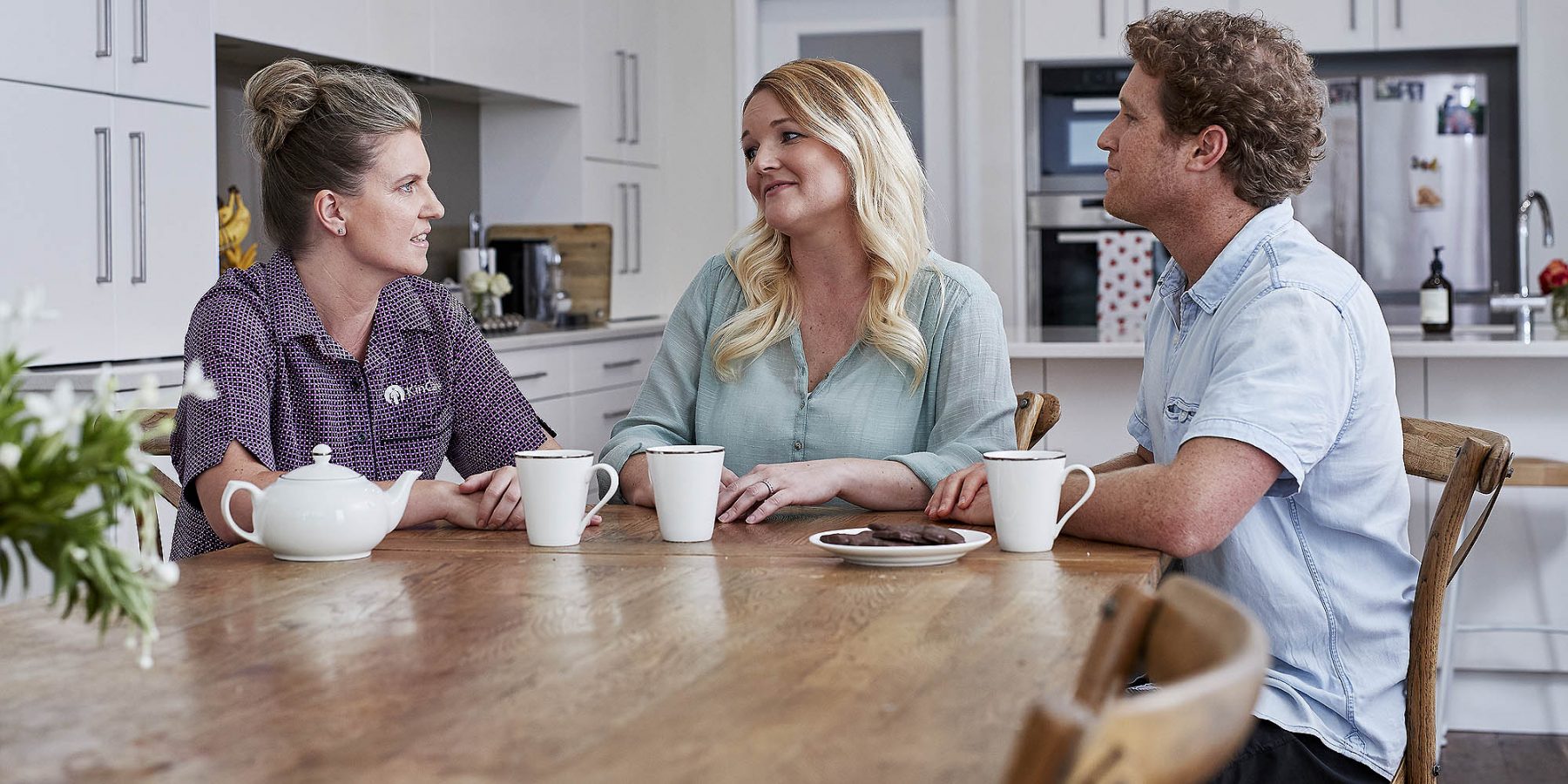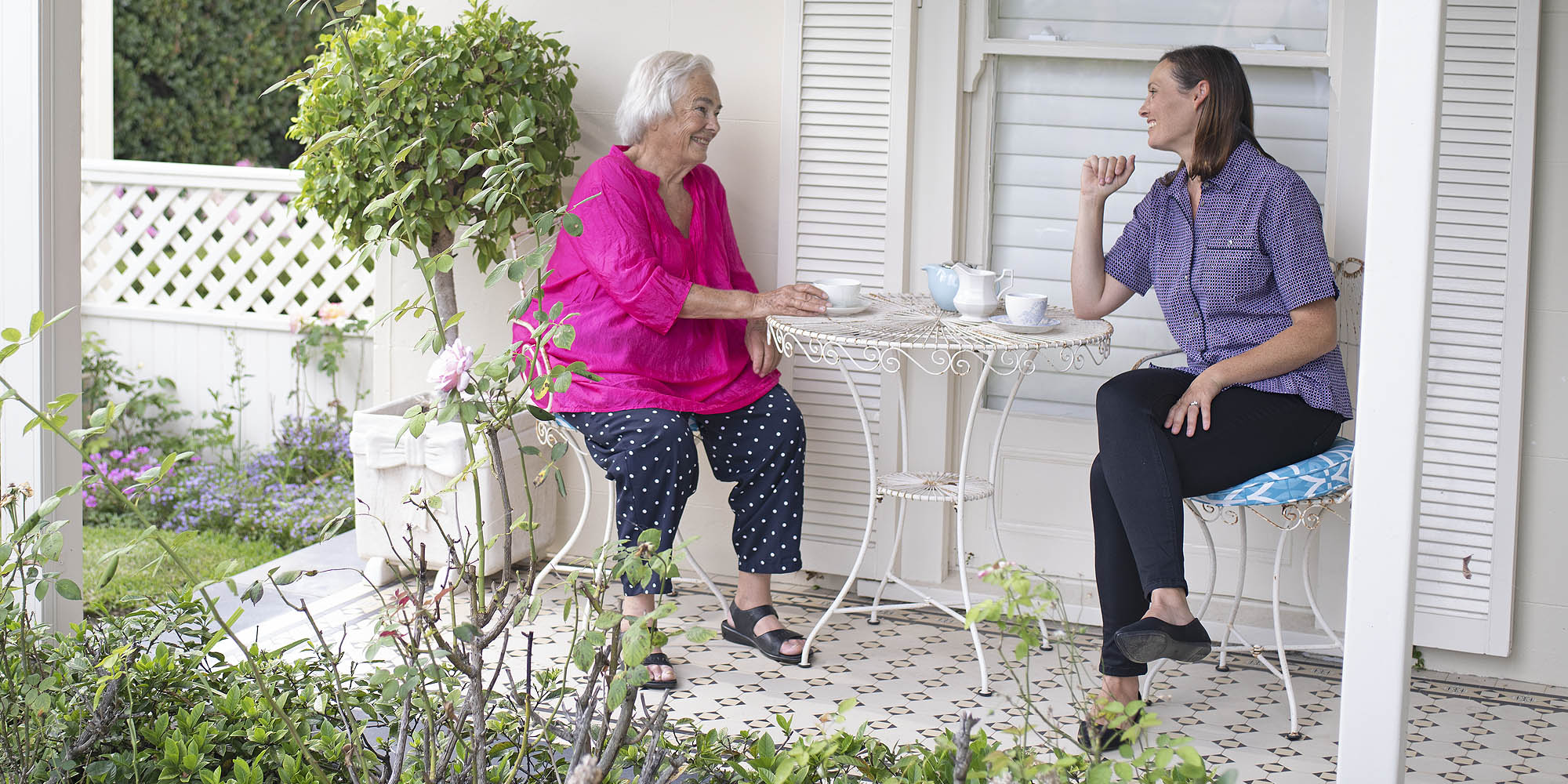
Palliative Care
What is Palliative Care?
Palliative care is a specialised approach to easing pain for people with serious or life threatening illnesses.
Care focuses on providing you with relief from the symptoms and stress by improving the quality of life for both yourself and your family. A palliative care approach to care can last for years, relieving pain at every point from diagnosis onwards.
It is therefore appropriate at any age and at any stage of a serious illness.
Which illnesses benefit from Palliative Care?
Palliative care from KinCare assists with serious illnesses such as cancer, cardiac disease, motor neurone disease, Alzheimer’s, Parkinson’s and end-stage kidney or lung disease to manage symptoms and improve their quality of life.
You can also choose to receive palliative care and continue to pursue other life-prolonging programs, including chemotherapy, radiation and surgery.
A tailored palliative care plan helps with a wide range of physical, emotional or day to day issues, including,
- Pain
- Constipation
- Nausea and vomiting
- Diarrhoea
- Bowel or bladder problems
- Loss of appetite, weight loss
- Shortness of breath
- Coughing
- Depression
- Mental confusion
- Weakness
- Difficulty sleeping
Palliative Care also helps you gain the strength to carry on with daily life. It improves your ability to tolerate medical treatments. A tailored plan also helps you have more control over your care by improving your understanding of your choices for treatment.

Our Approach
A serious illness affects more than just the body. It touches all areas of a your life, as well as lives of your family members
That’s why we bring together a diverse team of expert health professionals who will work closely with your GP and specialists to support your physical, psychological, social and spiritual needs.
Our team includes Registered Nurses, Enrolled Nurses, Physiotherapists, Occupational Therapists, Social workers, Dietitians and Home Care Workers to support you.
Pain Management
It’s important that you have the reassurance of having professional support and advice about managing your pain. Our staff can help with medications and are experienced in managing rapid changes to your health. We can also help give you injections and manage syringe drivers, catheters and intravenous lines. Other approaches that can help with your pain management include heat and cold packs, music, massage and distraction techniques.
Symptom Control
Sometimes you may need help with wound care, continence problems, and symptoms like nausea, vomiting, weakness, shortness of breath and dehydration. Our experienced staff can provide you and your family with advice, training, help choose the right wound care products and provide hands on care for your circumstances.
Care and Support
We know that activities like showering or bathing, cleaning the house, or attending to the shopping and meal preparation can have a considerable impact on you or your families time and energy. We recognise this is a challenging time for you and your family and can provide you with assistance with all of your diverse needs. Where appropriate we also help you access pastoral care or spiritual support as needed.
Palliative Care vs. Hospice Care
Hospice care and palliative care are related, but different.
Both palliative care and hospice care provide comfort. But palliative care can begin at diagnosis, and at the same time as treatment.
Hospice care is the supportive care to people in the final phase of a terminal illness with a focus on comfort and quality of life, rather than cure. The goal of palliative care and hospice care is for you to be comfortable and free of pain, so you live each day as fully as possible.
Funding Aged Care
The Commonwealth Government provides two types of subsidy to help fully, or partially fund in home support services. Your eligibility for these subsidies will depend on your personal circumstances. If you are not eligible to receive government funding, you can still access KinCare services privately.
